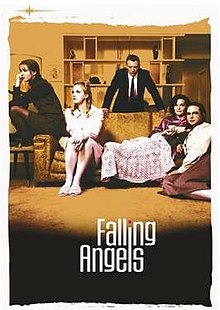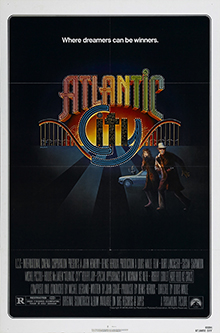
Atlantic City is a 1980 romantic crime film directed by Louis Malle from a screenplay by John Guare. It stars Burt Lancaster and Susan Sarandon in the leading roles, with a supporting cast featuring Kate Reid, Michel Piccoli, Robert Joy, Hollis McLaren, and Al Waxman. A co-production between French and Canadian companies filmed in late 1979, it was released in France and Germany in September 1980 and in the United States later that year by Paramount Pictures.

Places in the Heart is a 1984 American drama film written and directed by Robert Benton. It stars Sally Field, Lindsay Crouse, Ed Harris, Ray Baker, Amy Madigan, John Malkovich, Danny Glover, Jerry Haynes and Terry O'Quinn. The film follows Edna Spalding, a young woman during the Great Depression in Texas who is forced to take charge of her farm after the death of her husband and is helped by a motley bunch.

Barbara Gowdy, CM is a Canadian novelist and short story writer. Born in Windsor, Ontario, she is the long-time partner of poet Christopher Dewdney and resides in Toronto.

Sally Margaret Field is an American actress. Known for her extensive work on screen and stage, she has received many accolades throughout her career spanning six decades, including two Academy Awards, two Golden Globe Awards, and three Primetime Emmy Awards, in addition to nominations for a Tony Award and two British Academy Film Awards. She was presented with a star on the Hollywood Walk of Fame in 2014, the National Medal of Arts in 2014, the Kennedy Center Honor in 2019, and the Screen Actors Guild Life Achievement Award in 2023.

Hard Core Logo is a 1996 Canadian music mockumentary film directed by Bruce McDonald, adapted by Noel S. Baker from the novel of the same name by Michael Turner. The film illustrates the self-destruction of punk rock, documenting a once-popular band, the titular Hard Core Logo, comprising lead singer Joe Dick, fame-tempted guitarist Billy Tallent, schizophrenic bass player John Oxenberger, and drummer Pipefitter. Julian Richings plays Bucky Haight, Dick's idol. Several notable punk musicians, including Art Bergmann, Joey Shithead and Joey Ramone, play themselves in cameos. Canadian television personality Terry David Mulligan also has a cameo, playing a fictionalized version of himself.

Callum Keith Rennie is a British born Canadian actor, based in British Columbia. His breakthrough role was as punk rocker Billy Tallent in the music mockumentary Hard Core Logo (1996), followed by a starring role as Det. Stanley Raymond Kowalski on the third and fourth seasons of the television series Due South (1997–99). He then won a Genie Award for Best Actor in a Supporting Role for his performance in the Don McKellar film Last Night (1998).

Norma Marie Talmadge was an American actress and film producer of the silent era. A major box-office draw for more than a decade, her career reached a peak in the early 1920s, when she ranked among the most popular idols of the American screen.
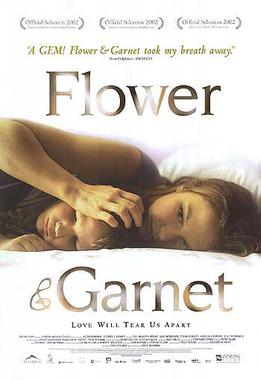
Flower & Garnet is a Canadian drama film, written and directed by Keith Behrman and released in 2002.

Snow Cake is a 2006 independent romantic comedy drama film directed by Marc Evans and starring Alan Rickman, Sigourney Weaver, Carrie-Anne Moss, Emily Hampshire, and Callum Keith Rennie. It was released on 8 September 2006, in the United Kingdom.
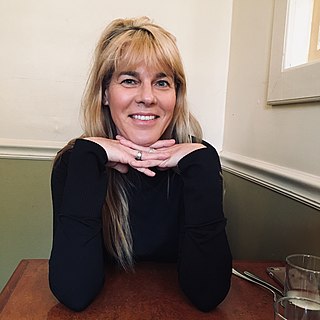
Esta Alice Spalding is an American author, screenwriter and poet who won the Pat Lowther Award in 2004 for Lost August.
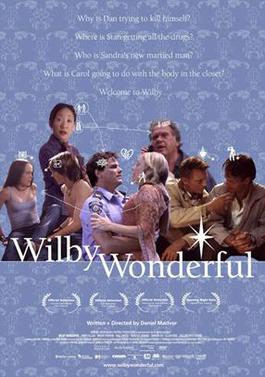
Wilby Wonderful is a 2004 comedy-drama film directed by Daniel MacIvor, and starring James Allodi, Maury Chaykin, Paul Gross, Rebecca Jenkins, Sandra Oh, Elliot Page, Callum Keith Rennie, and Daniel MacIvor. Wilby Wonderful tells the story about 24 hours in the life of the small town of Wilby, where the municipal festival is in preparation. It focuses on the changes occurring in the lives of several different inhabitants as development comes to the island and threatens to change the world around them. The title comes from a sign created to promote the town; comically, it has been painted wrong, and says "Wilby Wonderful", as opposed to "Wonderful Wilby".

Normal is a 2007 Canadian drama film about a group of unrelated people who are brought together in the wake of a deadly car crash. The film was directed by Carl Bessai, and stars Carrie-Anne Moss, Kevin Zegers, Callum Keith Rennie and Andrew Airlie.

Unnatural & Accidental is a 2006 Canadian film directed by Carl Bessai and starring Carmen Moore, Callum Keith Rennie, and Tantoo Cardinal. It was adapted from a Marie Clements play The Unnatural and Accidental Women.
Rob Gray was an award-winning Canadian production designer and art director. Gray was best known for his work on the TV miniseries Sons of Liberty, as well as The Stone Angel and The Cult.
Stephan Carrier is a re-recording mixer. He has worked on a number of films and television series.

Semi Chellas is a director, writer, producer who has written for film, television and magazines. She was born in Palo Alto, California and grew up in Calgary, Alberta. She is known for her work on the television series Mad Men and her film adaptation of American Woman based on Susan Choi's novel of the same name.
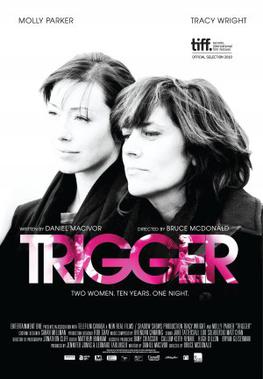
Trigger is a 2010 Canadian comedy-drama film directed by Bruce McDonald and starring Molly Parker and Tracy Wright as Kat and Vic, former rock stars reuniting their band Trigger for the first time since their retirement.
Vincent Gale is a Scottish-born Canadian film and television actor, who won the Genie Award for Best Supporting Actor at the 2002 Genie Awards for his performance in the film Last Wedding.
Curtis's Charm is a 1995 Canadian comedy-drama film written and directed by John L'Ecuyer in his directorial debut. The film won a special jury citation for Best Canadian Feature Film at the 1995 Toronto International Film Festival.

Minds Eye Entertainment is a Canadian film and television production and distribution company headquartered in Regina, Saskatchewan, Canada. The company produces television and film projects in Canada and the United States as well as internationally. Minds Eye Entertainment was founded by Kevin DeWalt and Ken Krawczyk in 1986. The company has produced more than sixty films and television series and has received over fifty national and international film awards.
